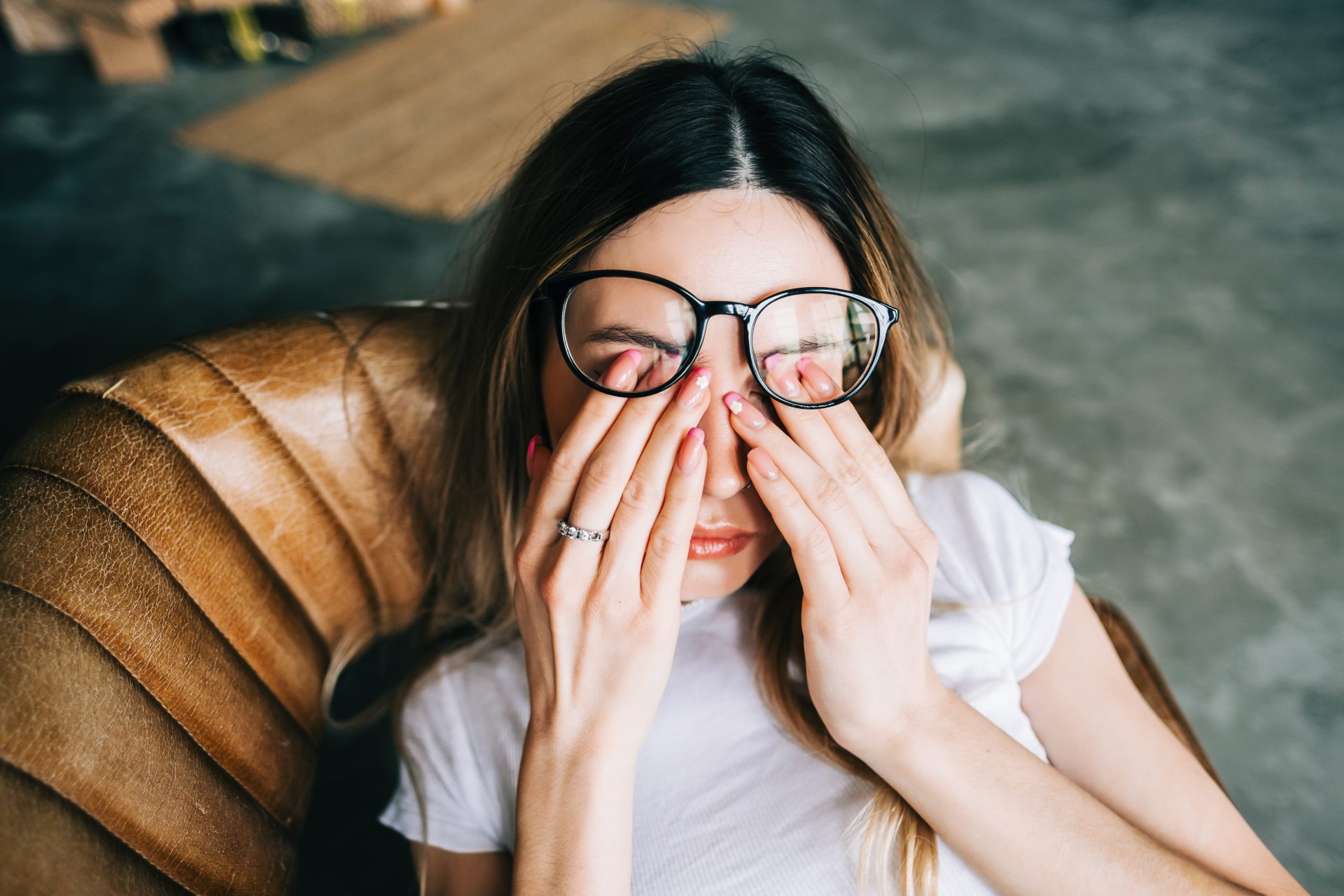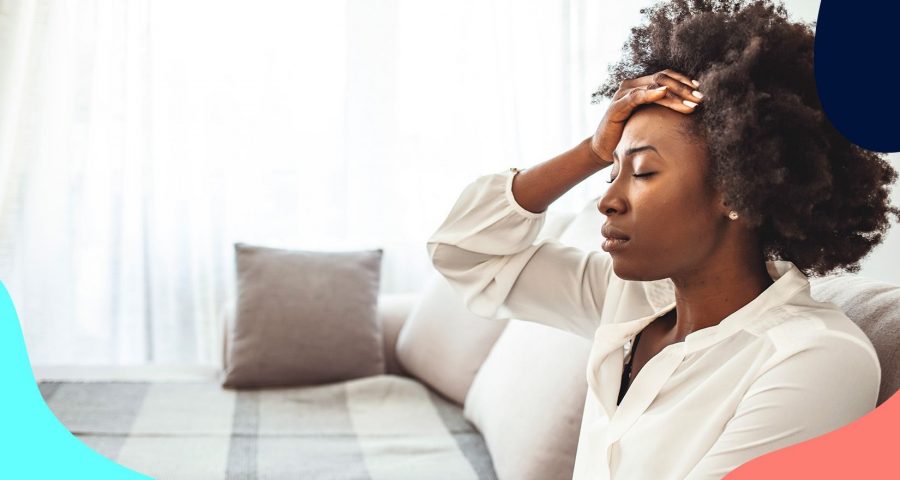Anxiety and migraine are both debilitating conditions, and science shows that they are often linked, dealing sufferers a double blow.
It’s difficult for me to identify what came first: my anxiety or migraines. What I do know, however, is that the second I start to experience migraine warning signs and symptoms (for me, it’s always my left eye starting to ache), my tummy flips and I’m hit by a sudden, forceful wave of anxiety and dread.
Both conditions are chronic and have, in some degree or another, hugely affected my quality of life at times. So the news that migraine sufferers are four times more likely to suffer from anxiety disorders than the rest of the population is a depressing confirmation of something I already kind of knew. But what’s the science behind the link? We asked the experts.
You may also like
Women are more likely to live with migraines, particularly around their periods – here’s why
The link between migraine and anxiety
“People who suffer from migraines – particularly chronic migraines – are more likely to also suffer from anxiety,” confirms GP and mental health specialist Dr Hana Patel. “Research has shown a link between the number of days people suffer from a migraine each month and the presence of symptoms of anxiety and depression,” she tells Stylist.
According to the charity The Migraine Trust, anxiety is the most common mental health problem associated with migraine, with studies showing that having three migraine days each month leads to a significantly increased risk of anxiety.
“Migraine and anxiety are closely linked – they share similar clinical features and presentation and both are episodic in nature,” explains chartered psychologist Catherine Hallissey. “They have a bidirectional relationship where each increases the risk of the other, ie if you suffer from migraines, you’re more likely to experience an anxiety disorder and vice versa.”
Do migraines cause anxiety… or does anxiety cause migraines?
Knowing that you’re prone to severe and long-lasting migraines, yet never quite knowing when an attack may strike, is likely to cause anxiety for even the most calm-tempered person. So it can be difficult to work out which is the root cause, but given that the end results are both equally unpleasant, it’s worth identifying your triggers for both.
“Given their similar clinical features and presentation, it can be difficult to diagnose one in the presence of the other,” agrees Hallissey. “However, given the high rates of anxiety in migraine sufferers, it is important to also screen for anxiety.”
You may also like
Women are more likely to live with migraines, particularly around their periods – here’s why
What triggers a migraine or anxiety attack?
“Both anxiety and migraine can start in a similar way and affect people in the same way,” explains Dr Patel. “As anxiety and migraine can occur together, people should consider whether they also suffer from anxiety. People who suffer from migraines may feel more anxious as they do not know when their next migraine may occur. It is a natural response to feel anxious in response to a threat, and this can make migraines worse.”
Additionally, both conditions can be hormonally triggered, with research showing that women are more likely to suffer from migraines than men, while factors such as lack of sleep and poor diet also impact both.
“Psychosocial stress is a common trigger for migraine attacks, similar to anxiety disorders. Both migraine and anxiety have a significant impact on quality of life,” says Hallissey, meaning it’s important to be aware of your triggers.
Tips for coping with migraines and anxiety
The good news is that being so closely linked, the steps you can take to alleviate either migraine or anxiety are likely to be effective for both.
Meditation
According to Dr Katy Munro, author of Managing Your Migraine, stress management is a key tool in managing chronic migraines. In her podcast Headaches, Migraine, Menopause and Running, she talks to Dr Juliet McGrattan about the benefits of simple breathing exercises, meditation and yoga, and how these calming strategies can all help to dial down the worry over a migraine attack, and in turn, make you feel more relaxed.
Breathing exercises
“Slow breathing exercises focusing on slow exhalations are good for improving the parasympathetic nervous system,” explains Dr McGrattan. “And we’ve seen that simply having a good management plan in place, feeling confident that you can manage an attack if you do get one, will help to reduce your anxiety around migraine.”
Stress reduction
“Reducing the frequency of headaches through medication, lifestyle changes and managing triggers is crucial to reducing the likelihood of developing an anxiety disorder,” advises Hallissey. “Stress reduction and anxiety management strategies along with personal therapy should also be part of the treatment plan.”

Medication
“Studies have also shown that medicine treatment for anxiety can reduce the frequency of migraines and their symptoms,” says Dr Patel, “and people who suffer from both conditions may have better control of their symptoms if this is also taken into consideration.”
And remember, there’s no need to suffer in silence. If you’re concerned about your anxiety, do consult your GP, who may be able to suggest talking therapies alongside medication if necessary.
Making lifestyle tweaks
Dr Patel also recommends quitting smoking, reducing your alcohol consumption and increasing your exercise levels to alleviate anxiety – and the chances are, they’ll have some benefit for migraines too. Researchers at the University of Gothenburg found that both moderate and strenuous exercise helped even chronic anxiety, while the same university has also created a migraine-safe exercise regime.
As with so many other issues, a more holistic, whole body approach is advisable – and the rewards can be plentiful.
Images: Getty
Source: Read Full Article
